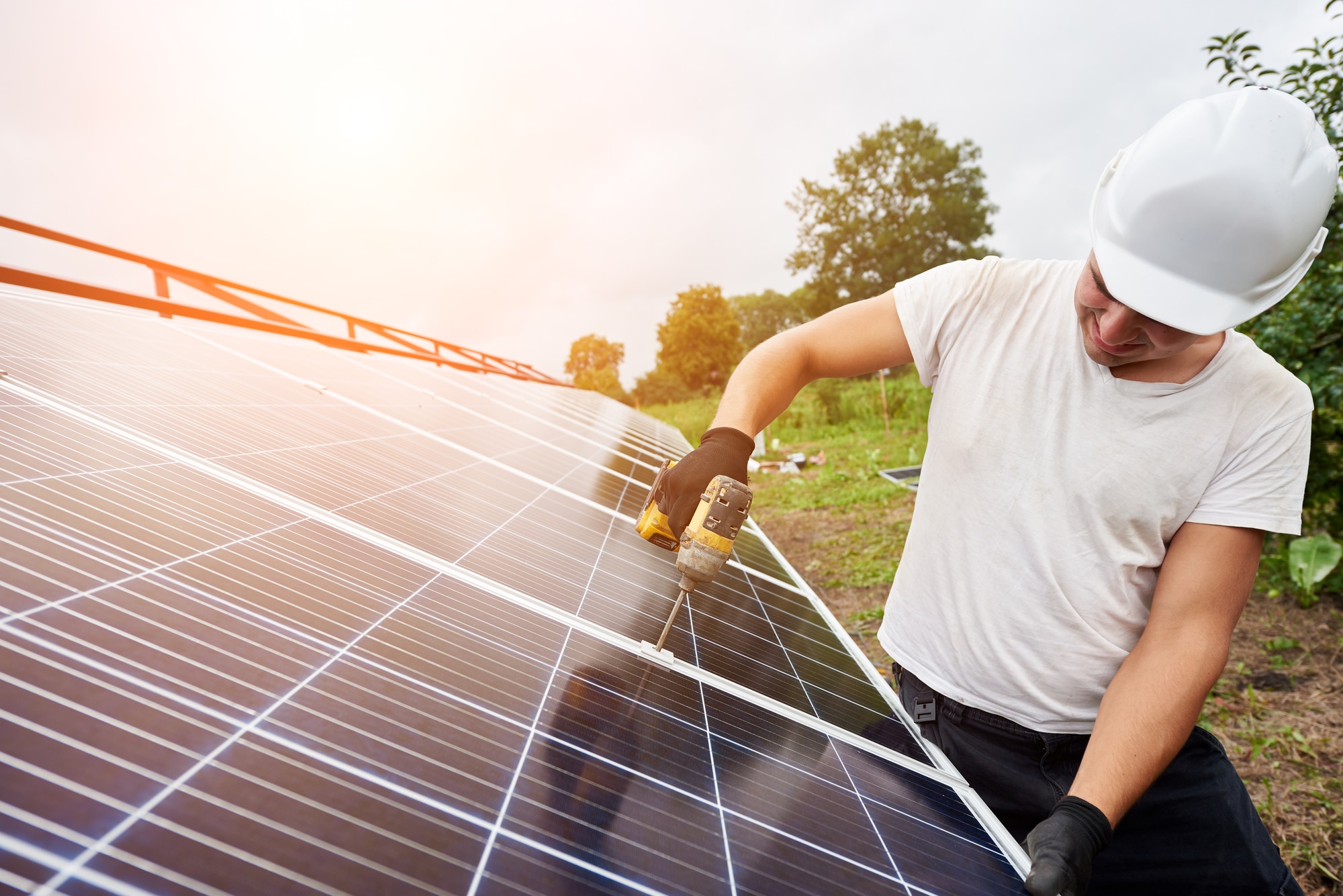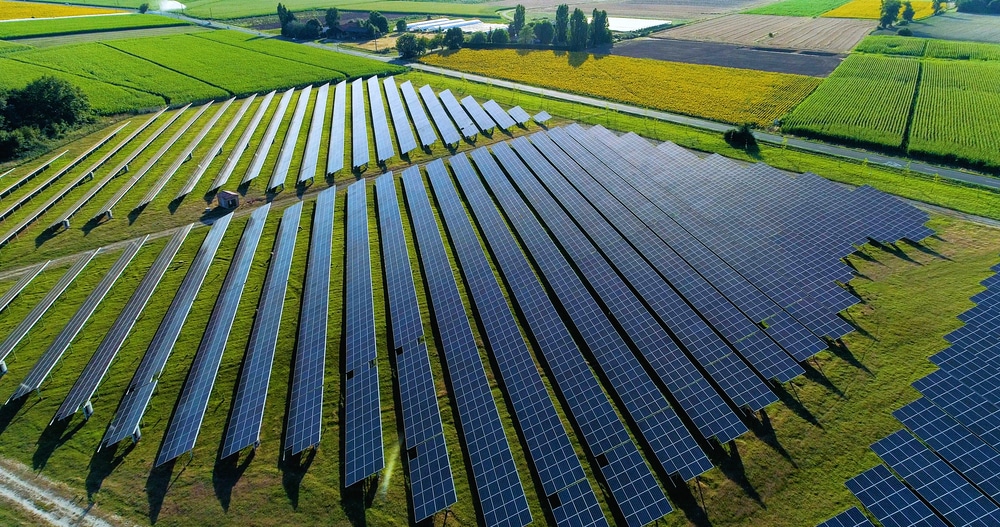As the demand for clean, renewable energy sources continues to grow, solar panel efficiency has become a hot topic. In this article, we’ll explore the latest techniques, trends, and technologies that are pushing the boundaries of photovoltaic system performance. From innovative materials to smart tracking systems, we’ll dive deep into the world of solar panel advancements.
1. Introduction to Solar Panel Efficiency
Solar panel efficiency refers to the ability of a solar cell to convert sunlight into electricity. The higher the efficiency, the more power a solar panel can generate, resulting in greater energy savings and a reduced carbon footprint. As new research and development efforts continue, we can expect to see even higher solar panel efficiencies in the future.
2. Advanced Materials and Technologies for Solar Panel Efficiency
The use of advanced materials and technologies has significantly contributed to the increase in solar panel efficiency. Some notable developments include:
-
Multi-junction solar cells: Traditional solar cells are limited by the Shockley-Queisser limit, but multi-junction cells overcome this limitation by stacking different semiconductor materials, each capturing a specific range of the solar spectrum. This results in higher overall solar panel efficiency.
-
Perovskite solar cells: These are a promising new material for solar cell technology, offering higher efficiency and lower production costs. Their lightweight and flexible nature makes them suitable for various applications, further boosting solar panel efficiency.
-
Transparent solar panels: Researchers are developing transparent solar cells that could be integrated into windows or other surfaces, allowing for more efficient use of space and expanding the potential for solar energy generation.
3. Smart Tracking Systems for Enhanced Solar Panel Efficiency
One way to improve solar panel efficiency is by using tracking systems. These devices adjust the angle of the solar panels throughout the day to follow the sun, ensuring maximum exposure to sunlight. As a result, tracking systems can significantly increase the energy output of solar panels.
4. Optimal Energy Storage Solutions
To make the most of the increased solar panel efficiency, it’s essential to have an efficient energy storage system. Compressed air storage and advanced battery technologies like LiFePO4 batteries are excellent options for storing solar energy efficiently. A well-designed battery management system and cell balancing are also crucial for optimal battery performance.
5. The Future of Solar Panel Efficiency
As research and development efforts continue, we can expect further advancements in solar panel efficiency. Some potential areas of growth include:- New materials and designs: Ongoing research into novel materials and designs, such as nanotechnology and quantum dots, has the potential to unlock even greater solar panel efficiency. These innovations could enable solar cells to capture a wider range of sunlight and convert it more effectively into electricity.
- Artificial intelligence and machine learning: The integration of AI and machine learning in solar panel systems can help optimize performance by identifying patterns, predicting issues, and making real-time adjustments to improve efficiency.
- Integration with energy storage: As energy storage technology advances, solar panel systems can be paired with more efficient battery systems to optimize energy usage and further reduce the reliance on traditional energy sources. Improved energy storage can help address the intermittent nature of solar energy production and ensure a more consistent power supply.
Frequently Asked Questions about Solar Panel Efficiency
- What is solar panel efficiency?Solar panel efficiency refers to the ability of a solar panel to convert sunlight into usable electricity. The higher the efficiency, the more power a solar panel can generate per unit of surface area.
- Why is solar panel efficiency important?Improving solar panel efficiency allows for more power generation from the same amount of sunlight, leading to greater energy savings, reduced environmental impact, and faster return on investment for solar panel installations.
- What factors affect solar panel efficiency?Some key factors that impact solar panel efficiency include the materials and design of solar cells, temperature, shading, panel orientation, and cleanliness.
- What is the typical efficiency range for commercial solar panels?Commercial solar panels usually have an efficiency range of 15% to 22%. However, more advanced and emerging technologies can achieve even higher efficiency rates.
- How can I maximize the efficiency of my solar panels?Proper installation, orientation, regular cleaning, and maintenance can help maximize the efficiency of your solar panels. Additionally, investing in advanced technologies and materials can lead to further improvements in efficiency.
- Do solar panels lose efficiency over time?Yes, solar panels typically degrade over time, with a gradual decline in efficiency. Most panels come with a performance warranty of 25 years, which guarantees a certain level of efficiency over their lifetime.
- What is a perovskite solar cell?Perovskite solar cells are a promising next-generation solar cell technology made from a unique class of materials. They can be combined with traditional silicon cells to form tandem solar cells, potentially reaching efficiencies exceeding 30%.
- How does temperature affect solar panel efficiency?Solar panel efficiency decreases as temperature increases, due to the temperature coefficient of the solar cells. Installing panels with proper airflow and using heat-resistant materials can help mitigate this issue.
- What is a multi-junction solar cell?Multi-junction solar cells consist of multiple layers of solar cells with varying bandgaps, enabling them to capture a broader spectrum of sunlight for improved efficiency. These cells are currently expensive to produce but show potential for future applications.
- Are there coatings available to improve solar panel efficiency?Yes, innovative coatings such as anti-reflective and light-trapping coatings can reduce light reflection and increase the amount of sunlight absorbed by solar panels, leading to improved efficiency.
- How does shading impact solar panel efficiency?Shading can significantly reduce the efficiency of solar panels, as even partial shading can lower power output. Avoiding shading from buildings, trees, and other obstacles is crucial for maintaining high efficiency.
- Can artificial intelligence improve solar panel efficiency?Artificial intelligence and machine learning can help optimize solar panel performance by identifying patterns, predicting issues, and making real-time adjustments to improve efficiency.
- How do solar trackers impact solar panel efficiency?Solar trackers can enhance solar panel efficiency by adjusting the panels’ position throughout the day to follow the sun, ensuring that the panels receive the maximum amount of sunlight.
- Does regular cleaning impact solar panel efficiency?Yes, regular cleaning of solar panels helps maintain efficiency by removing dust, dirt, and debris that can accumulate on the panels, reducing their ability to absorb sunlight.
- What are the future trends in solar panel efficiency?Future trends in solar panel efficiency include the development of new materials and designs, the integration of artificial intelligence and machine learning, and improved energy storage solutions.
- What is the current record for solar panel efficiency?As of September 2021, the current record for solar panel efficiency stands at 39.2%, achieved by a multi-junction solar cell developed by researchers at the National Renewable Energy Laboratory (NREL). It is important to note that this record may change as new advancements are made in solar panel technology.


